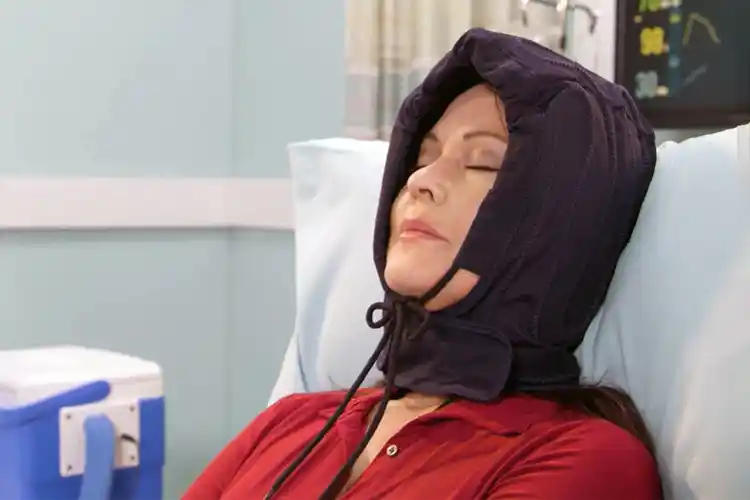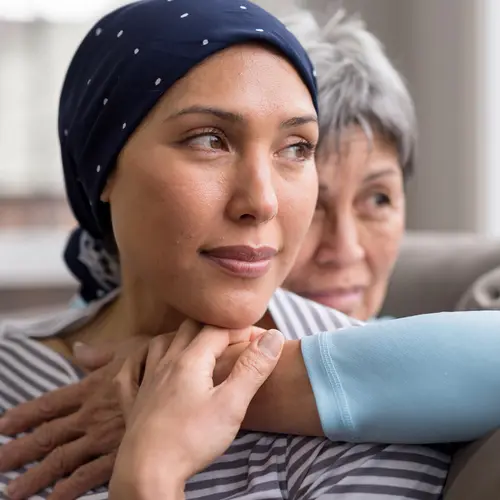What Is a Cold Cap?

Hide Video Transcript
Video Transcript
SPEAKER
Some types of chemotherapy can cause hair to fall out. Although hair loss caused by chemotherapy is usually temporary, many cancer patients find it to be one of the most distressing side effects of treatment. Cold caps, which cause scalp hypothermia, are being used to potentially reduce hair loss in chemotherapy patients. Scalp hypothermia is when the scalp is cooled with a cold cap before, during, and after chemotherapy sessions. Cooling the scalp causes blood vessels to constrict, which may limit the amount of chemotherapy drug that reaches hair follicles. The cold also decreases the activity of the hair follicles and makes them less attractive to chemo. This could limit the effect of chemo on the follicle cells and therefore prevent or reduce hair loss.
Cold caps come in several varieties. Some are computer controlled, and circulate cooled liquid through a cap a person wears that is secured by a rubber cover. Simple versions of cold caps can just be head wraps with ice packs sewn in.
Controlled studies of ice pack cold caps have had conflicting results but studies of computer controlled cooling cap systems have shown some benefits. A study of women getting chemo for early stage breast cancer has found that at least 50% of the women using these devices have lost less than half of their hair. The success of scalp hypothermia is related to the type of chemo drugs used, the chemo dosage, and how well the person can tolerate the coldness of the cap. In addition, if cooling caps are not fitted tightly their effectiveness is greatly reduced.
The most common side effects have been headaches, neck and shoulder discomfort, chills, and pain in the scalp. Importantly, proper device use will prevent possible injuries, such as frostbite. Cold cap treatment is still being studied and debated. Some doctors are concerned that the cold could keep chemo from reaching any stray cancer cells in the scalp, allowing them to survive chemo and keep growing. More studies are needed to answer questions about long term safety.
If you are considering cold cap therapy, it's important to carefully weigh the potential benefits, discomforts, and risks. Discuss the pros and the cons with your cancer treatment doctor. It is a good idea to ask your cancer treatment center what their success has been using cooling caps. Cost is also a consideration. It's important to check with your insurance company to see what might be covered before starting your treatment.
